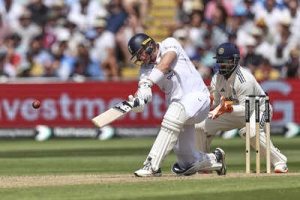Parenting is a complex endeavor with no universal blueprint. While parents often have the best intentions, their disciplinary methods can sometimes be extreme, ranging from shouting and screaming to, in unfortunate cases, occasional violence. However, these approaches frequently fall short because effective discipline demands patience, a clear purpose, a well-thought-out plan, and the active participation of both parents.
Among the various parenting techniques, the "good cop, bad cop" approach is a common one. This involves one parent assuming the role of the "bad cop" by being strict and enforcing rules, while the other acts as the "good cop," offering leniency and understanding. But is this method genuinely effective in raising well-behaved children? Let's delve deeper.

The "good cop, bad cop" technique originated from police interrogation tactics, where one officer adopts a tough, demanding demeanor, while the other is understanding and sympathetic. The ultimate goal is the same: to encourage the accused to confess or acknowledge their mistake. In parenting, this translates to one parent acting as the disciplinarian, setting and strictly enforcing rules, while the other parent is more relaxed, mitigating the impact of the strict rules. This division aims to strike a balance between discipline and warmth.
For instance, when a child misbehaves, the "bad cop" parent might impose a time-out or revoke a privilege. Meanwhile, the "good cop" parent might comfort the child afterward or calmly explain the situation, helping the child understand why their actions were wrong. This approach is often employed to manage conflicts and maintain harmony within the family.
Many parents adopt this pattern organically, without conscious effort. One parent might find themselves managing daily routines and discipline more frequently, naturally becoming the "bad cop." The other parent, perhaps due to work commitments, might become the "good cop," providing emotional support and fun experiences for the child. This division can seem like a practical way to share parenting responsibilities and minimize constant conflict. The technique can also be gender-specific, with mothers often cast as the "bad cop" and fathers as the "good cop."
Furthermore, parents might believe that this method helps children learn boundaries while still feeling loved and understood. The "bad cop" establishes limits, while the "good cop" provides a sense of safety and security.
While this technique might appear effective in the short term, experts and studies suggest that it often creates more problems than it solves. Here's why:
Children thrive on clear, consistent rules to understand expectations. When one parent enforces strict discipline while the other relaxes the rules, children receive conflicting messages, making it difficult for them to discern right from wrong. This inconsistency can lead to confusion and frustration.

Children are quick to learn that defying the "bad cop" can lead to the "good cop" lessening the consequences. This can encourage them to manipulate situations by playing parents against each other. Over time, children can become skilled at manipulating their parents.
The "good cop, bad cop" dynamic can create tension and division between parents. The "bad cop" might feel resentful for always being the strict one, while the "good cop" might be perceived as spoiling the child. This can weaken the parental partnership and lead to frequent arguments.
Children tend to form stronger bonds with the "good cop" parent, who is seen as fun and understanding. This can make the "bad cop" parent feel rejected or distant from the child, potentially damaging trust and respect over time.
Research indicates that harsh or inconsistent parenting styles can lead to stress, anxiety, and behavioral issues in children. A 2016 study from Iowa State University revealed that even when balanced by the other parent's leniency, harsh parenting can negatively affect children's physical and mental well-being, particularly at a young age. The "good cop" parent's kindness cannot undo the unintentional harm caused by the "bad cop" parent's strictness.
Instead of relying on the "good cop, bad cop" technique, consider these alternative strategies:
Newer articles
Older articles
 India's Harshit Rana Released from Squad Ahead of Second England Test in Birmingham
India's Harshit Rana Released from Squad Ahead of Second England Test in Birmingham
 Phone Grip Personality Test: What Your Hand Position Reveals About You
Phone Grip Personality Test: What Your Hand Position Reveals About You
 Gujarat Cricket Association to Debut T20 League in 2025-26 Season
Gujarat Cricket Association to Debut T20 League in 2025-26 Season
 Najmul Hossain Resigns as Bangladesh Test Captain Following Series Defeat
Najmul Hossain Resigns as Bangladesh Test Captain Following Series Defeat
 Chess Sensation: Nine-Year-Old Indian Prodigy Holds Magnus Carlsen to Draw in Online Tournament
OR
Chess World Stunned: 9-Year-Old Indian Player Draws Against Magnus Carlsen; Carlsen Reaches Unprecedented Freestyle Chess Rating
Chess Sensation: Nine-Year-Old Indian Prodigy Holds Magnus Carlsen to Draw in Online Tournament
OR
Chess World Stunned: 9-Year-Old Indian Player Draws Against Magnus Carlsen; Carlsen Reaches Unprecedented Freestyle Chess Rating
 Smith Poised for Grenada Test Return, Boosting Australia's Lineup
Smith Poised for Grenada Test Return, Boosting Australia's Lineup
 Smith's Century Roars Barmy Army to Life, Edgbaston Test Grips Fans
Smith's Century Roars Barmy Army to Life, Edgbaston Test Grips Fans
 Nitish Rana Eyes Delhi Return After Disappointing Uttar Pradesh Stint
Nitish Rana Eyes Delhi Return After Disappointing Uttar Pradesh Stint
 SA20 Teams Granted Six Retentions Ahead of Player Auction
SA20 Teams Granted Six Retentions Ahead of Player Auction
 England Captain Stokes Credits Opening Duo for Setting Up Thrilling Chase Against India
England Captain Stokes Credits Opening Duo for Setting Up Thrilling Chase Against India